Puppy Care 101: Everything a New Owner Needs to Know
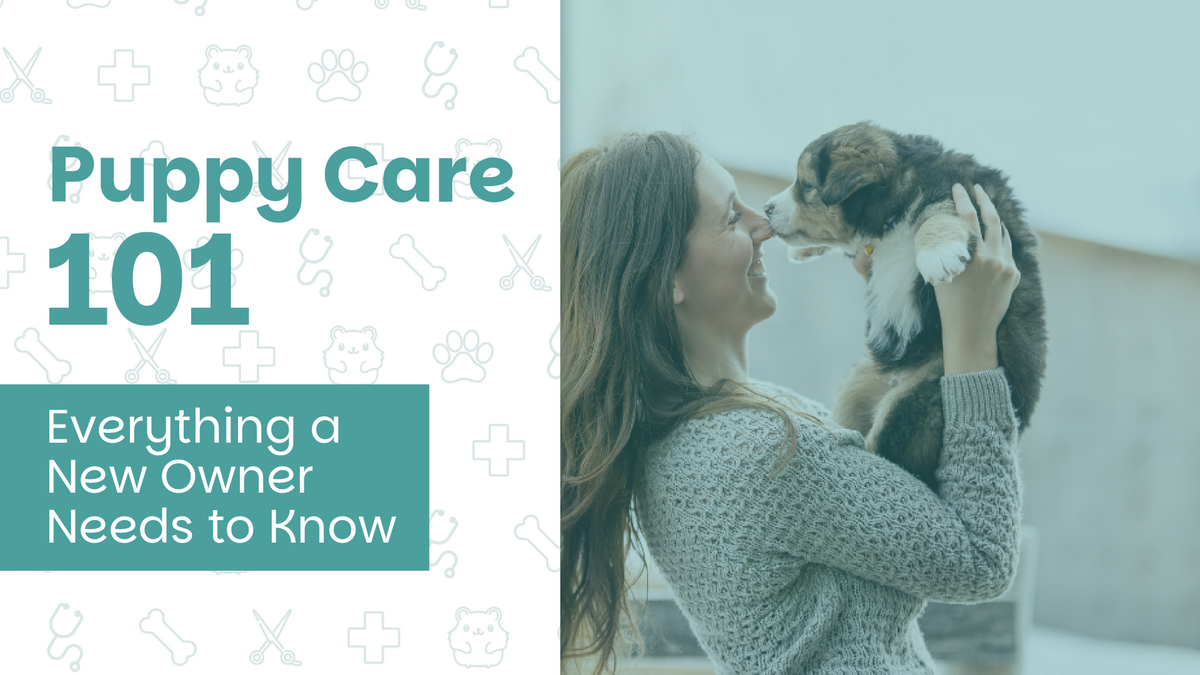
Think you’re prepared for the whirlwind that comes with welcoming a tiny, furry member to your family? You’re in for an adventure filled with belly rubs, midnight zoomies, and more cuteness than you thought possible.
Life just got a lot more fun… and maybe a little more chaotic. From those sweet, sleepy cuddles to the new routines taking shape, you’re stepping into a world that’s both exciting and full of questions.
What should your pup eat? How do you handle potty training? When should you visit the vet?
It’s completely normal to feel a mix of joy and “Where do I even start?”—but you’re not in this alone. With a little planning, a sprinkle of patience, and the right guidance, you’ll have everything you need to give your pup the best start possible.
That’s where this guide comes in. Whether your puppy is already home or still just a dream, we’ll walk you through the essentials to help you feel confident, prepared, and ready for all the tail-wagging moments ahead.
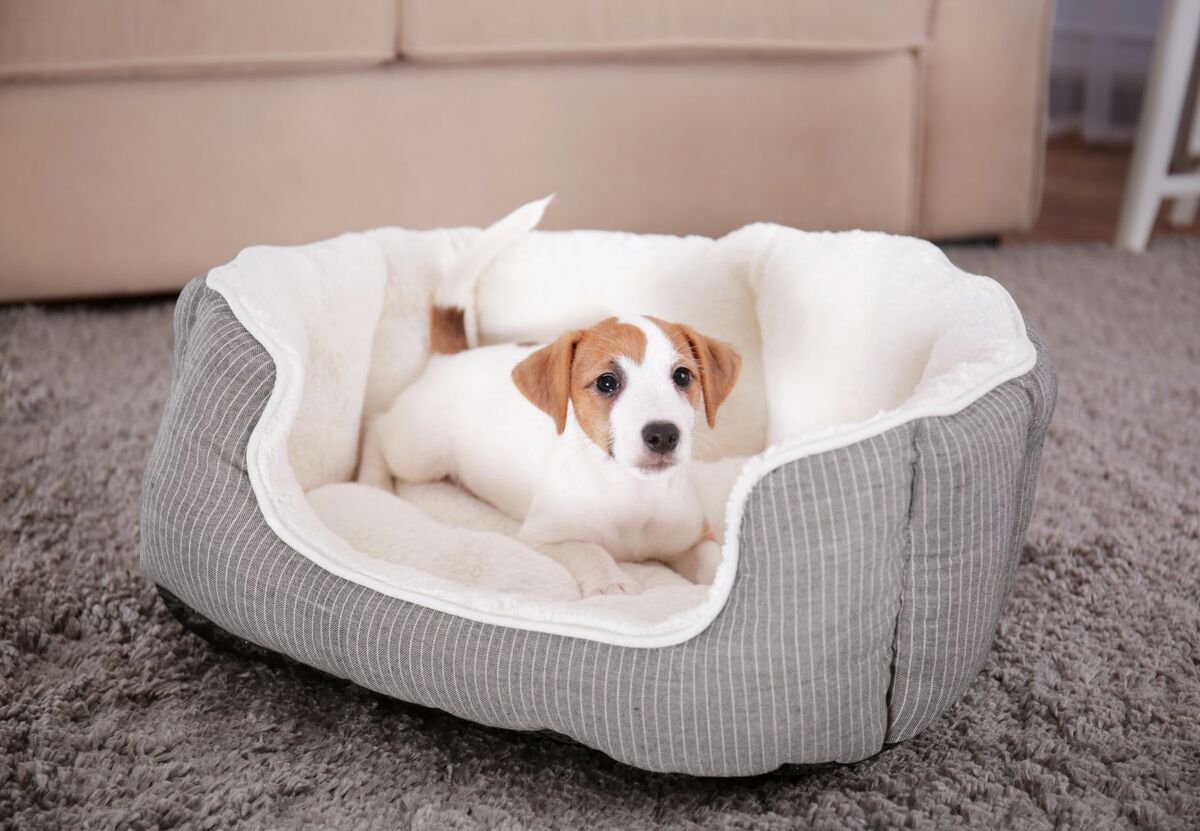
Must-Have Puppy Supplies
Your puppy’s first days at home set the tone for everything that comes next. Before those paws hit the floor, make sure you have a checklist of supplies ready to welcome them into a safe, comforting space.
Basic Supplies
Let’s begin with the basics—here are some everyday essentials that will help you and your new puppy settle in with confidence:
- Crate or Playpen— A crate gives your puppy a cozy place to rest, helps with house training, and sets up a consistent routine.
- Food and Water Bowls— Stainless steel or ceramic options are easy to clean and hard to chew.
- Collar, Leash, and ID Tag—Make sure your puppy is always identifiable, even at home.
- Comfy Bedding—Soft, washable, and snug—something that fits well in their crate or designated rest area.
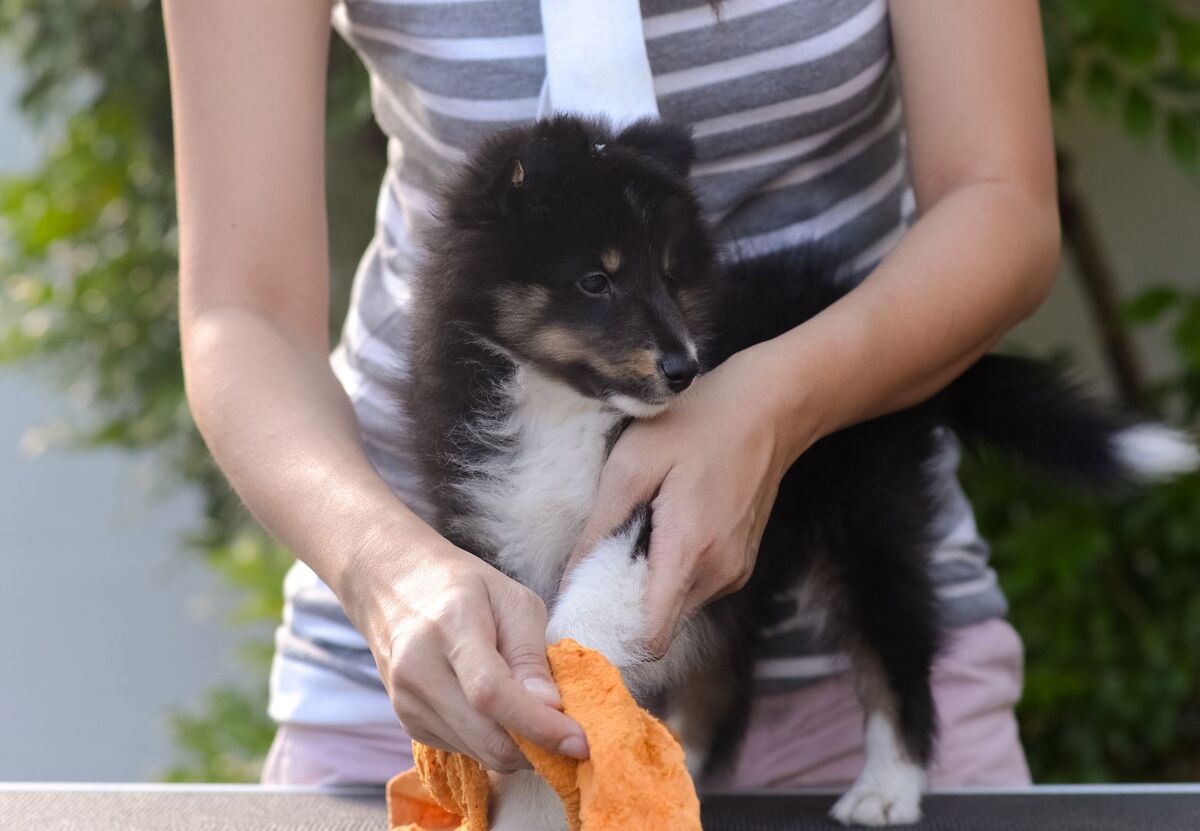
Cleaning & Grooming Items
Puppies are adorable, but they can also be messy! These items will help you stay on top of cleanliness and introduce healthy habits early:
- Puppy Shampoo and Brush—Gentle grooming starts with the right products. At our clinic, you’ll find safe, puppy-friendly shampoos and conditioners designed for sensitive skin and developing coats. Each option is formulated to match your pet’s specific coat type and needs.
- Nail Trimmer or Grinder—Getting your puppy used to paw handling early makes trims easier down the road.
- Toothbrush and Dog-Safe Toothpaste— Start a dental care routine right away. Never use human toothpaste.
- Cleanup Supplies—Accidents are part of the process. Stock up on waste bags, enzymatic cleaners, and puppy pads.
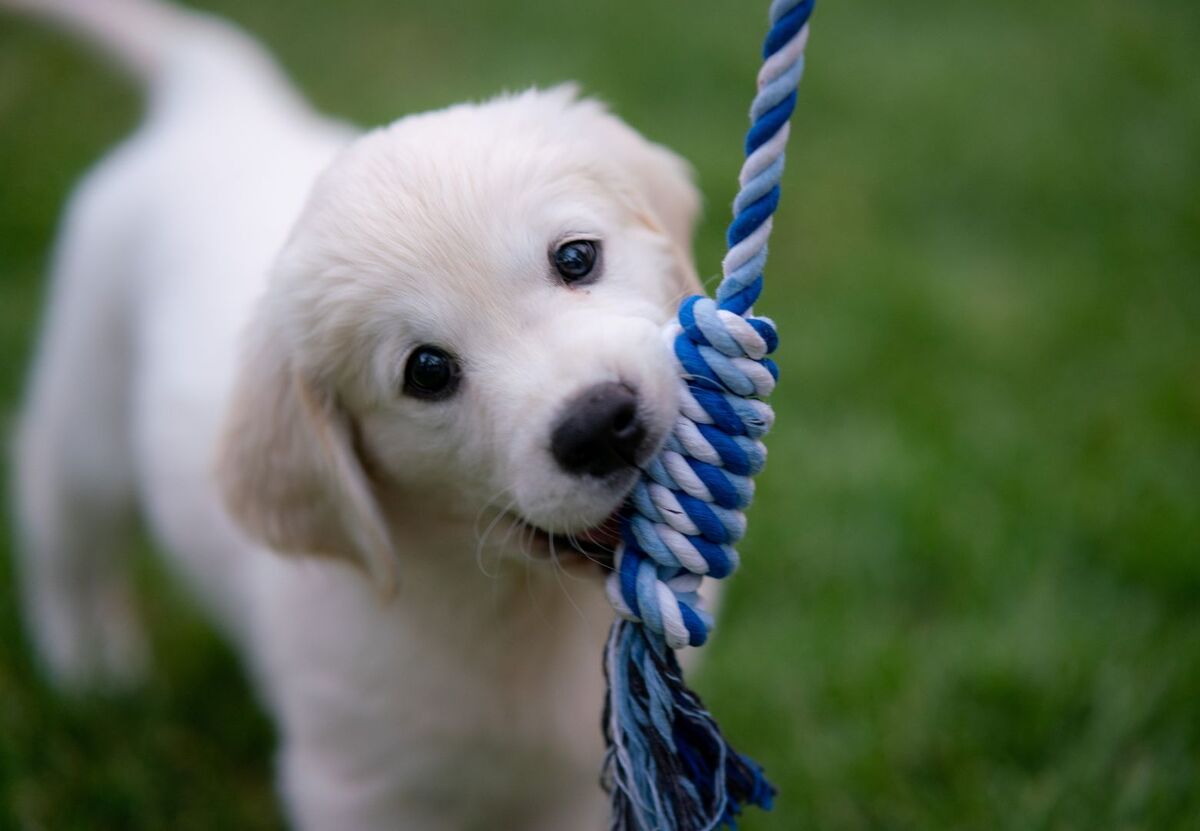
Playtime Essentials
Play is more than fun—it’s how puppies learn and grow.
Here are a few must-haves to include in your care checklist:
- Teething Toys—Safe chewing toys help with sore gums and keep your pup from nibbling on furniture.
- Interactive Toys—Puzzle feeders or treat-dispensing toys offer mental enrichment.
- Comfort Items—A soft stuffed animal or blanket can provide a sense of security, especially at bedtime. In addition to cozy items, pheromone products (available at our clinic) can also help ease stress and support your puppy or kitten as they adjust to their new environment.
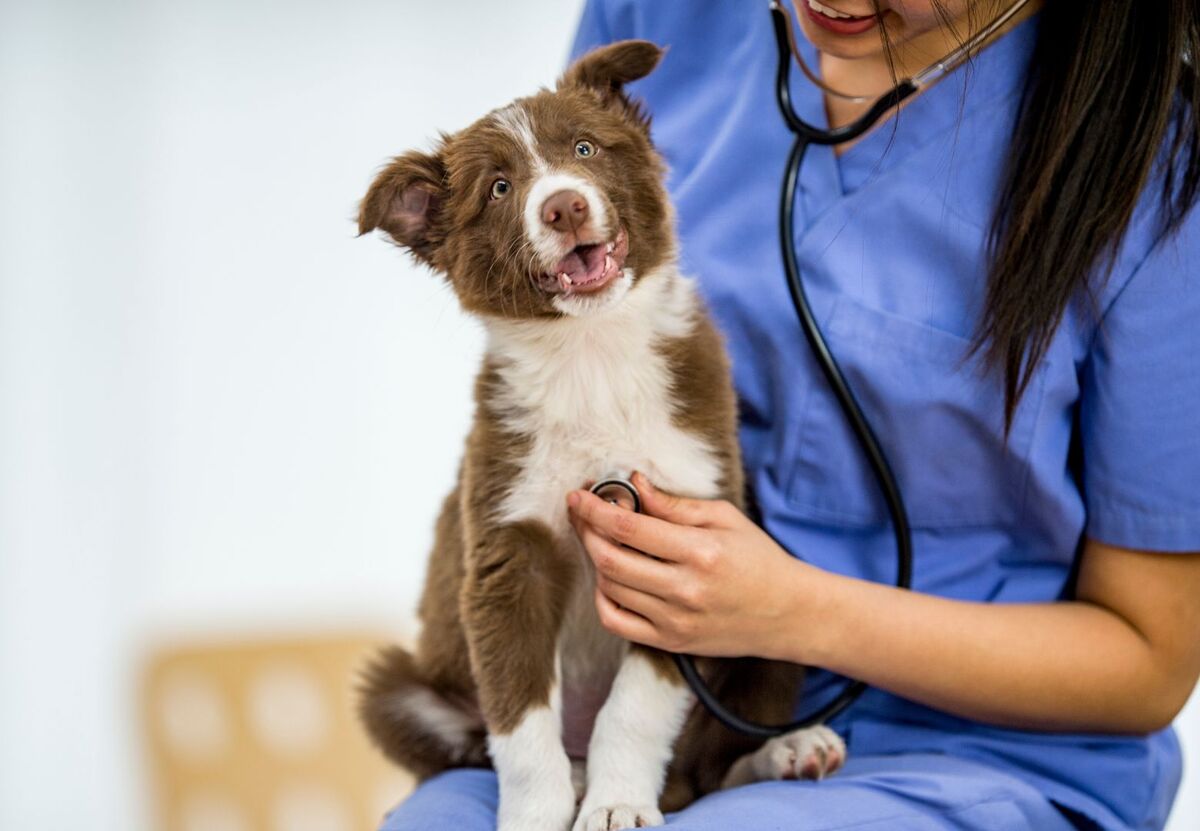
Your Puppy’s First Vet Visit
That first vet visit sets the foundation for long-term health. It might feel like a big step, but with a little prep, it’s one of the most important items to check off your new puppy checklist.
What Happens at the Appointment
Here’s what you can expect when you walk into the clinic:
- A full physical exam to check for any early issues
- Core puppy vaccinations and deworming
- A fecal exam to check for internal parasites or eggs that could affect your puppy—and potentially your family
- First doses of heartworm, flea, and tick prevention using the best options available for your pet’s needs
- Discussion of microchipping and the benefits it provides
- A chance to meet your vet team and start building a relationship that lasts a lifetime
What to Talk to the Vet About
Use this time to ask questions and get professional guidance on topics like:
- Upcoming vaccine schedule and key health milestones
- When to schedule spaying or neutering
- Nutrition advice tailored to your puppy’s breed, size, and activity level
- Tips for common behavior concerns like biting, jumping, or crate resistance
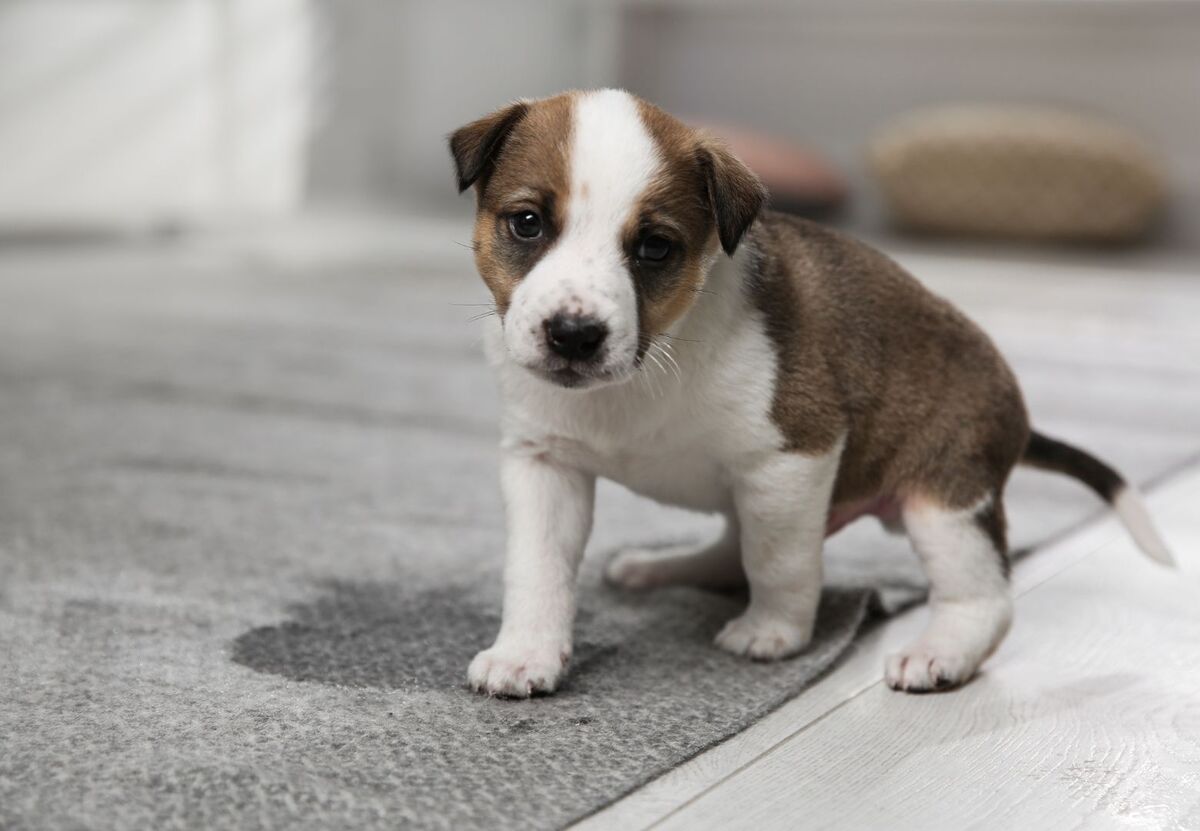
Starting Training the Right Way
It’s never too early to start building good habits. Training not only teaches commands; it builds trust and confidence. Let’s break down what to focus on first.
House Training Basics
Patience and consistency go a long way.
Keep these steps in mind:
- Set a consistent schedule and routine
- Take your pup outside right after eating, waking, or playing
- Reward success with praise or treats
- Clean accidents without scolding—puppies learn best with patience
Early Commands to Practice
Starting with simple commands lays the groundwork for good behavior later on.
Practice:
- Sit—the easiest starting point for most puppies
- Stay – Helps with impulse control
- Come—crucial for safety and recall
- Drop It—Prevents chewing or swallowing something dangerous
Socializing Your Puppy
Positive experiences now can help your puppy grow into a confident, friendly dog. Introduce them to the world with care:
- Expose your puppy to new people, pets, and sounds in a safe, gradual way
- Keep interactions positive with praise or treats to build good associations
- Hold off on public outings with other dogs until your vet gives the all-clear
- Confirm your puppy is up to date on core vaccines and has a clear fecal exam
- Make sure they’ve started flea, tick, and heartworm prevention to stay protected as they explore
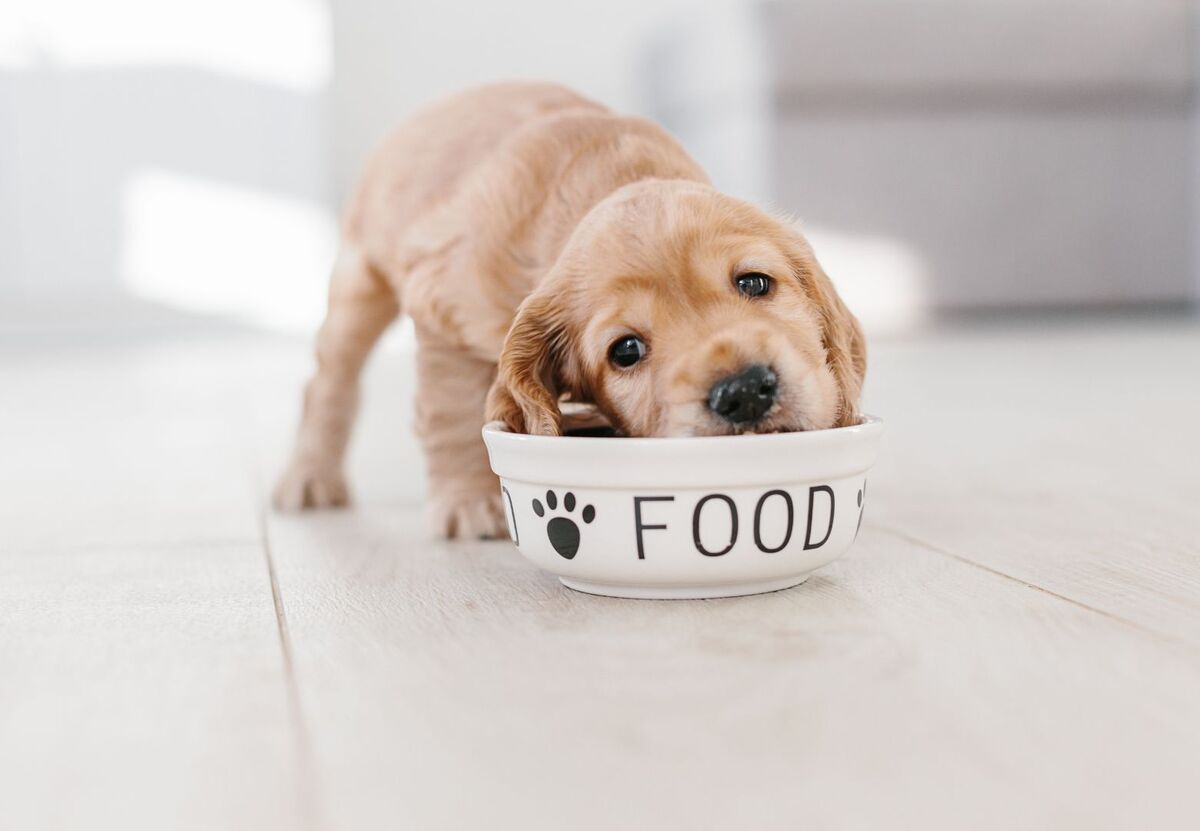
Feeding Tips for a Growing Puppy
Nutrition shapes your puppy’s health from day one. A thoughtful approach to feeding can make all the difference.
Choose the Right Food
The right food fuels healthy growth.
Look for:
- A formula labeled specifically for puppies
- Food that matches your puppy’s size and breed type
- Limited fillers and familiar, high-quality ingredients
- AAFCO-approved diets to ensure complete and balanced nutrition
Not sure where to start? Stop by our office for a tailored sample of Dr. Hassel and Dr. Miller’s favorite foods—handpicked to help your puppy start strong and stay healthy.
Setting a Feeding Schedule
Routine helps with digestion and behavior.
Keep in mind:
- Younger puppies need 3–4 small meals a day
- Around 6 months, most can switch to 2 meals
- Always keep clean, fresh water available
Treats and Extras
Treats are a helpful training tool, but they should be given thoughtfully:
- Use treats for training, not as a primary food source
- Avoid giving table scraps or foods like chocolate, onions, or grapes
- Talk to your vet before introducing supplements
Set Your Pup Up for a Great Start with Lebanon Small Animal Clinic
Bringing home a new puppy is a heartwarming experience—and with the right care and preparation, it can be smooth and rewarding too.
At Lebanon Small Animal Clinic, we're here to be your partner in every stage of your pup's journey. From their first checkup to nutrition consultations, training tips, and long-term wellness, you can count on our compassionate team to help your puppy thrive.
Looking for more tips and adorable pet moments? Follow us on social media to stay connected and get helpful advice straight from our Care Companions!


